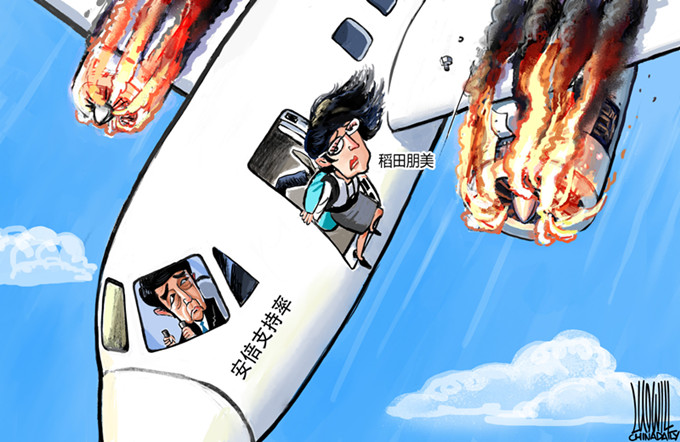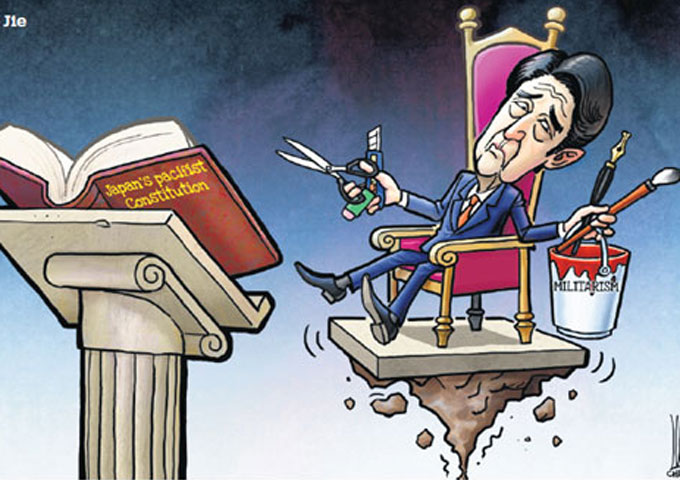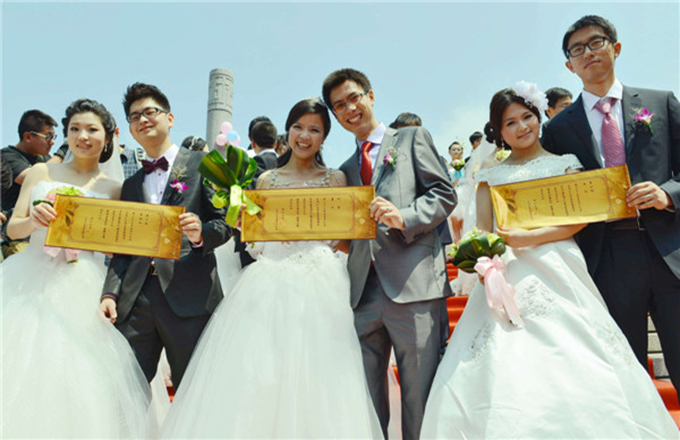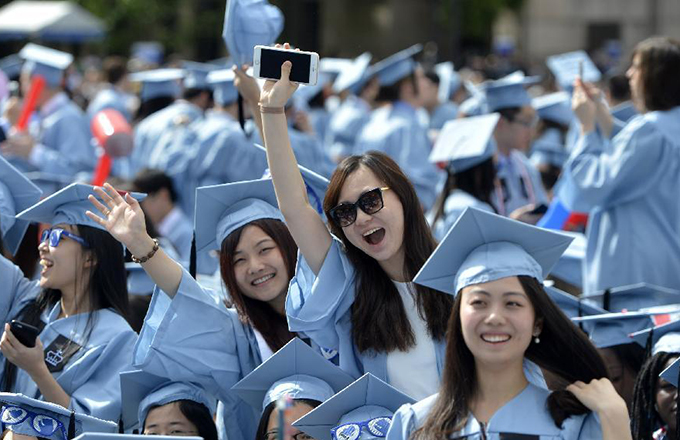Onus on HK to take advantage of initiative
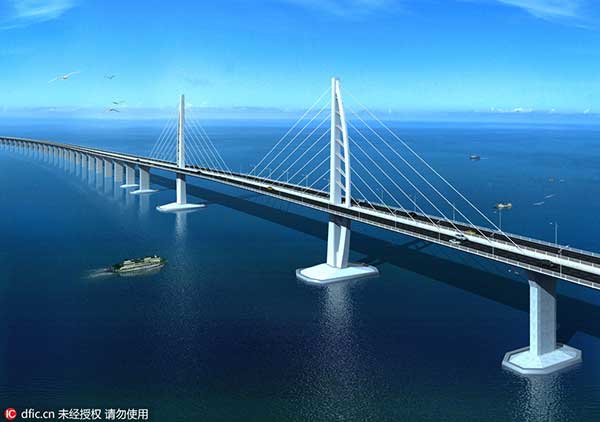 |
|
An illustration picture of the Hong Kong-Zhuhai-Macao Bridge.[Photo/IC] |
After having followed the "one country, two systems" principle for 20 years, the Hong Kong Special Administrative Region should now look forward to navigating through the next 20 years. And the Belt and Road Initiative could provide a much-needed guidance for that endeavor.
We have been reiterating the grand opportunities the Belt and Road Initiative offers, which however can be taken advantage of only through new thinking and vision. Yet Hong Kong seems satisfied to serve as an intermediary platform between the Chinese mainland and foreign investors and enterprises.
If the SAR continues to play this role, it can never cash in on the Belt and Road Initiative which has the potential of changing the global economy for the better. Therefore, it is time Hong Kong emerged out of its "cocoon" and spread its wings to fly and seek a better future.
First, the successful implementation of the "one country, two systems" principle for 20 years has made Hong Kong more dependent on the mainland. As a Hong Kong economist once said: "If Hong Kong is too dependent on the mainland, its future is doomed, and if not, its future is also doomed." Which means for a better future, the SAR needs to find a new route, a route that no other city, province or region of China can overtake it on. For example, with the number of economies involved in the Belt and Road Initiative continuing to increase, Hong Kong has to take immediate measures to become a "hub" that adds momentum to the Belt and Road Initiative to ultimately reap the benefits. And as a global intellectual and mercantile center, the SAR has everything it needs to do so.
Second, Carrie Lam Cheng Yuet-ngor recently became the fourth chief executive of Hong Kong. By and large, Hong Kong government operations have been corruption free and highly efficient. A popular saying in the SAR goes, Hong Kong needs a CE like Guanyin, the thousand-handed goddess of mercy, because of the deterioration in the relationship between the CE-led administrative branch, the Legislative Council-centered legislative branch and a part of the city's vociferous population. And since the administrative branch is still under enormous pressure, it will face difficulties in transforming Hong Kong into a hub that can cash in on the opportunities offered by the Belt and Road Initiative.
Therefore, the business elites have to play a greater role to enable the SAR to derive the maximum benefits from the initiative. Hong Kong has thrived on the proactive entrepreneurial spirit of its residents. And thanks to this spirit, many Hong Kong residents can be counted among the best entrepreneurs in the world who have also helped make Hong Kong prosperous. Looking forward to the next 20 years, and having the Belt and Road Initiative as an underpinning, a new era seems to be descending on Hong Kong, an era in which entrepreneurs can move the SAR's economy forward to fulfill the desired goal.
And third, the SAR should not and must not be satisfied by just being a giant supermarket in the "Guangdong-Hong Kong-Macao Greater Bay Area". The world of higher education is well aware of Hong Kong's excellent universities and its reputation as a knowledge-based city.
To be sure, Hong Kong's advantages go far beyond the three fields mentioned above. It will enjoy as well as offer more opportunities in the coming 20 years. However, to take advantage of those opportunities, Hong Kong has to throw off its "cocoon" and think and act beyond its role as the intermediary platform between the mainland and foreign investors and entrepreneurs.
Feng Da Hsuan is special advisor to the rector and the director of Global Affairs at the University of Macau, and Liang Haiming is chairman and chief economist of China Silk Road iValley Research Institute.
- Hong Kong bids farewell to aircraft carrier Liaoning
- Xi gives best birthday gift to Hong Kong
- Central authorities reign over and govern Hong Kong
- Deck reception held on Chinese aircraft carrier Liaoning in Hong Kong
- Hong Kong firms need to take technologists on board
- Xi wraps up three-day Hong Kong trip






